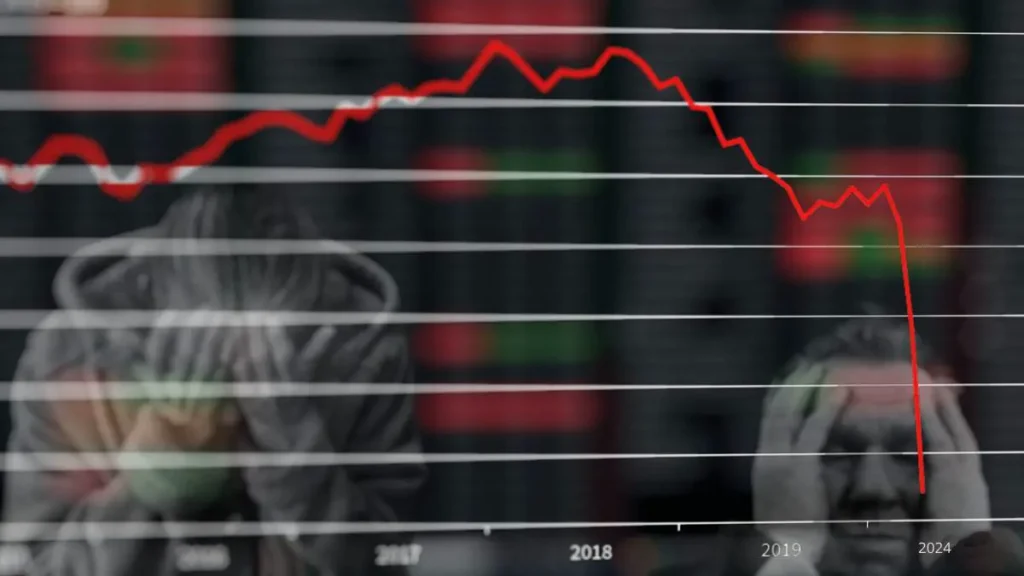This Friday, the Bureau of Labor Statistics is expected to release its monthly report. According to Bloomberg Economics, there will be a slight increase in the US unemployment rate for November as the economy shows signs of entering into a recession. The anticipated rise, from 3.9% to 4%, may be accompanied by a temporary boost in employment growth.
Bloomberg economists Anna Wong and Stuart Paul suggest that this temporary rebound can be attributed to the resolution of two significant strikes.
The Prospects and Risks in the Pursuit of a Soft Landing
Friday’s jobs report for November could offer insights into the possibility of the much-talked-about “soft landing” for the US economy. The anticipation is high as analysts look to the report for signs indicating this kind of elusive scenario.
Recent economic indicators show promise. Companies advertising fewer job openings and Americans exhibiting less job-switching compared to a year ago.
These trends generally contribute to a slowdown in wage growth and inflation pressures. The hiring pace is easing, and there’s a noticeable moderation in price increases.
These trends in the economy suggest that the Federal Reserve could be increasingly well-positioned to achieve the goal of bringing inflation down to its 2% annual target without triggering a severe recession, meeting the criteria for a commonly defined “soft landing.”
However, this endeavor is not without its risks. There’s the potential for the economy to decelerate to the extent of slipping into a recession.
Shifts in the US Unemployment Rate
The US unemployment rate, starting the year at a remarkably low 3.4%, has climbed to 3.9%. More Americans actively seek employment without immediate success. While the number of people receiving unemployment aid remains relatively low, it has seen an increase.
Moreover, throughout much of this year, hiring has been focused on specific sectors like healthcare, restaurants and hotels, and government, rather than being widespread across the entire economy.
Economists surveyed by FactSet anticipate that the November jobs report from the Labor Department will reveal the addition of a robust 172,500 jobs, slightly surpassing October’s gain of 150,000
However, the November job increase is expected to be inflated by the inclusion of United Auto Workers members and Hollywood actors. Their strikes concluded in October, thus they returned to work contributing approximately 40,000 of the month’s job gains.
Fed’s Impact on Hiring and Spending
The cooling of hiring is attributed to the Federal Reserve’s significant interest rate hikes. These hikes have increased borrowing expenses for both consumers and businesses.
This has led to a downturn in sales for high-priced items like homes, cars, and appliances, as well as a decline in investments.
Over the period from August to October, job growth averaged 204,000 per month. That is a notable decrease from the 342,000 average during the same three-month period in 2022.
Despite the relatively low US unemployment rate, economists express concerns about the potential for a self-perpetuating cycle. As unemployment rises, individuals tend to reduce spending, contributing to a slowdown in the economy. This, in turn, prompts other businesses to implement layoffs.
According to a common rule of thumb, even a slight additional increase in the jobless rate could align with the onset of a recession.
Powell’s Potential Play
If the data begins indicating a recession, Fed Chair Jerome Powell could signal the central bank’s intention to cut rates soon, aiming to reduce borrowing costs.
Such a message would probably spark a rally in the financial markets and potentially provide a boost to the economy.
Currently, the majority of analysts are optimistic, foreseeing a future of slower yet consistent growth and a reduction in inflationary pressures.
Projections indicate the economy is likely to expand at a modest 1.5% annual rate in the last three months of this year. A slowdown from the robust 5.2% pace was observed in the July-September quarter. This cooler growth is expected to contribute to lowering inflation while maintaining a modest pace of hiring.
Read More: BlackRock Strategist Calls Market Expectations for Fed Rate Cuts in 2024 ‘Overdone’
Fed Chair Powell Calls Talks of Rate Cuts ‘Premature’
Fed Officials Change Stance But Remain Wary of Rate Cut Bets

